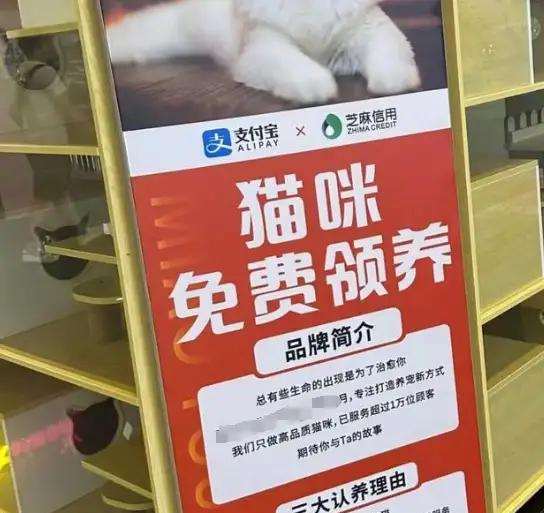The Hidden Cost of 'Free' Pet Adoption Scams
A widespread pet adoption scam in China lures people with ‘free’ cats but locks them into expensive multi-year contracts for pet supplies, effectively turning adoptions into high-interest loans and predatory sales schemes.

The recent surge of “free cat adoption” scams across China has exposed a disturbing trend in pet adoption schemes. What appears on the surface as a compassionate initiative to find homes for cats has been revealed as a calculated financial trap.
These operations typically set up attractive storefronts in busy commercial areas, displaying cats in glass enclosures with seemingly inflated price tags ranging from several thousand to over ten thousand yuan. When potential adopters inquire, they’re told the cats are available for “free adoption” - but there’s a catch.
The scam operates through several sophisticated layers:
The initial deception begins with emotional manipulation. Staff members share compelling rescue stories about the cats and emphasize the adopter’s moral obligation to provide good care. They conduct “background checks” and require signing multiple agreements, making potential adopters feel invested in the process.
The core of the scheme emerges when adopters are required to commit to purchasing pet supplies exclusively from the store’s platform for 2-3 years, with monthly mandatory spending around 398 yuan. These contracts are often tied to electronic payment systems or credit platforms, making them difficult to escape.
The financial burden becomes apparent through marked-up prices for basic necessities like cat food, litter, and accessories. Items that normally cost 100 yuan might be priced at 500 yuan or more through their mandatory purchasing system. A typical three-year contract can end up costing adopters over 10,000 yuan.
Many victims discovered their adopted cats were sourced from wholesale markets or strays, often with health issues. When cats fall ill or die, adopters remain legally bound to continue payments due to carefully worded contract clauses.
The scam has proven particularly effective at targeting young people and first-time pet owners who lack experience with normal pet care costs. Many victims report feeling trapped between their emotional attachment to their adopted pet and the crushing financial obligations.
Legitimate animal welfare organizations operate very differently. They typically run adoption events in partnership with established shelters, focus on adult cats rather than kittens, and never require purchasing specific products or signing long-term contracts. Most importantly, they prioritize animal welfare over profit.
For those considering pet adoption, the safest approach is to work with recognized animal welfare groups or shelters. A genuine adoption should never require ongoing financial commitments beyond basic care, which owners should be free to source as they choose. When it comes to pet adoption, “free” offers with strings attached often end up being the most expensive choice of all.